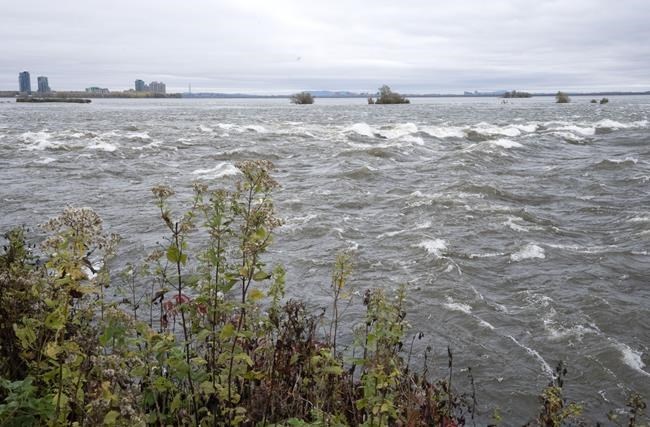MONTREAL — A boat used by firefighters during a deadly rescue mission last year in the St. Lawrence River off Montreal Island was not designed to operate in rapids, Quebec’s workplace health and safety board said Thursday.
The board's report identified three principal factors that led to the Oct. 17, 2021, death of firefighter Pierre Lacroix, a married father of two. He died after he was trapped beneath a HammerHead boat, which was coming to the aid of two boaters in distress.
The fatal rescue mission, the report concluded, was due to the turbulent waters of the Lachine Rapids, the fact the rescuers were inadequately trained, and to incomplete information that led the firefighters to a part of the river where the boat wasn't supposed to be.
Safety board inspector Danny Lapointe wrote in his report that the firefighters "should never have found themselves so far, so deep" in a zone in the Lachine Rapids deemed off limits by the fire department in 2010.
“The HammerHead was not certified to go there,” Lapointe said.
The workplace safety board said the rushing waters in the section of rapids where the firefighters intervened exceeded the rescue boat's capacities. The HammerHead capsized due to a combination of factors that included the distribution of weight of the firefighters on board and the large waves.
Lapointe also noted that the turbine engine was not designed for towing and that the boat's stability when in reverse had not been tested. The safety board said that model of boat was involved in capsizing incidents in 2009 and 2010, leading the city's fire department to launch an internal investigation.
The second major factor that led to the firefighter's death was that the crew aboard the boat — and responders at a riverside command post — lacked adequate training, which exposed the firefighters to the danger of drowning.
Finally, the boat's GPS navigation system was not activated because the firefighters wanted to avoid glare from the device in the evening hours, Lapointe said. However, the safety board said that even had the firefighters activated the system, the rapids' no-go zone was not inputted into the device.
The investigation did not rule on whether another type of boat would have made a difference in Lacroix's death.
The safety board said it will maintain a ban on firefighters navigating that part of the rapids until the fire department can ensure its workers can operate there safely.
Meanwhile, the City of Montreal has been fined for compromising the safety of workers. Fines for first offences range from $17,680 to $70,727. The city has 30 days to respond.
Coun. Alain Vaillancourt, responsible for public security on the city's executive committee, said officials will take time to analyze the findings, and he said the fire department has already begun to revamp training. The city, he added, has purchased 12 new high-performance boats to replace the HammerHead craft.
A coroner's inquiry into Lacroix's death will begin in late November.
Vaillancourt said he would like to hear recommendations from the coroner's probe before taking further action.
This report by The Canadian Press was first published Oct. 6, 2022.
---
This story was produced with the financial assistance of the Meta and Canadian Press News Fellowship.
Frédéric Lacroix-Couture, The Canadian Press

